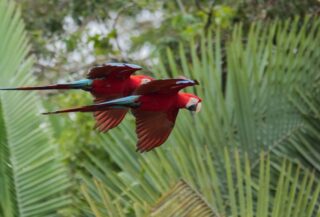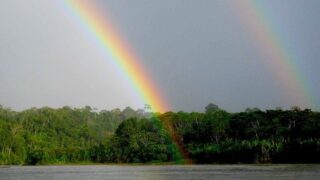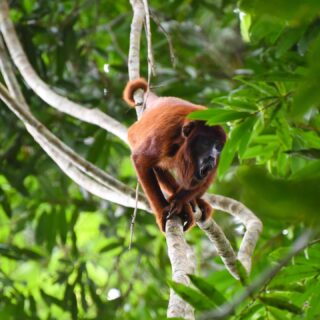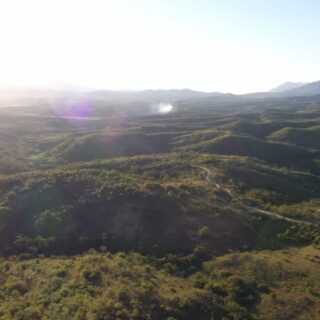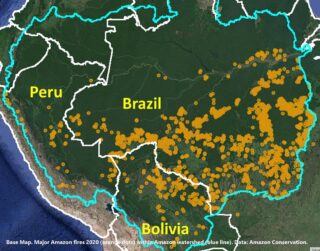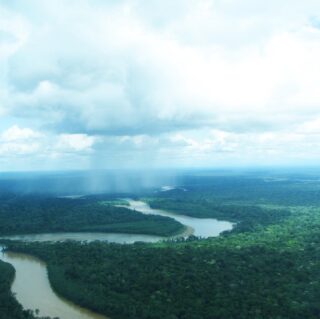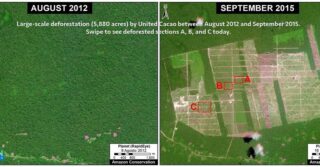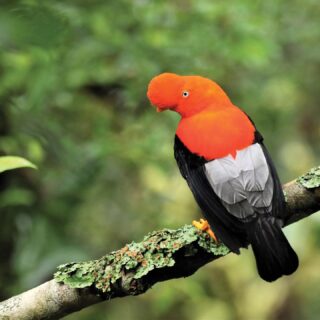Amazon Fire Tracker 2020: Images Of The Brazilian Amazon Fires
August 17, 2020
![]() Our innovative new app for Real-time Amazon Fire Monitoring has now detected over 350 major fires in the Brazilian Amazon this season.*
Our innovative new app for Real-time Amazon Fire Monitoring has now detected over 350 major fires in the Brazilian Amazon this season.*
Specifically, we have detected 365 major fires as of August 17, since the first major fire detected on May 28.
The fire season is accelerating, as 79% of the major fires have occured in August.
Below, we present a series of satellite images showing key examples from August 2020.
We highlight our key finding that the vast majority of major fires (88%) burned recently deforested areas covering 557,000 acres (226,000 hectares). Thus, the fires are actually a striking indicator of the rampant deforestation currently threatening the the Brazilian Amazon.
We have detected 4 Forest fires (1% of the major fires) covering 2,790 acres (1,130 hectares) and 3 savanna fires covering 38,000 acres (15,000 hectares). The rest of the major fires are burning older agricultural areas.
Other key findings include:
- The vast majority of the fires (96%) are illegal, occuring past the 120 day moratorium established in July.
- At least 18 of the major fires have been in protected areas or indigenous territories.
- Most of the fires (70%) have occurred in two departments: Amazonas and Para. Mato Grosso and Rondonia each account for 15%.
We have detected an additional 10 major fires in the Bolivian Amazon, and that will be the feature of a future report.
Images of the 2020 Brazilian Amazon Fires
1) Fires burning recently deforested areas
Brazilian Amazon Fire #338 (August 16, 2020)
Brazilian Amazon Fire #335 (August 16, 2020)
Brazilian Amazon Fire #233 (August 11, 2020)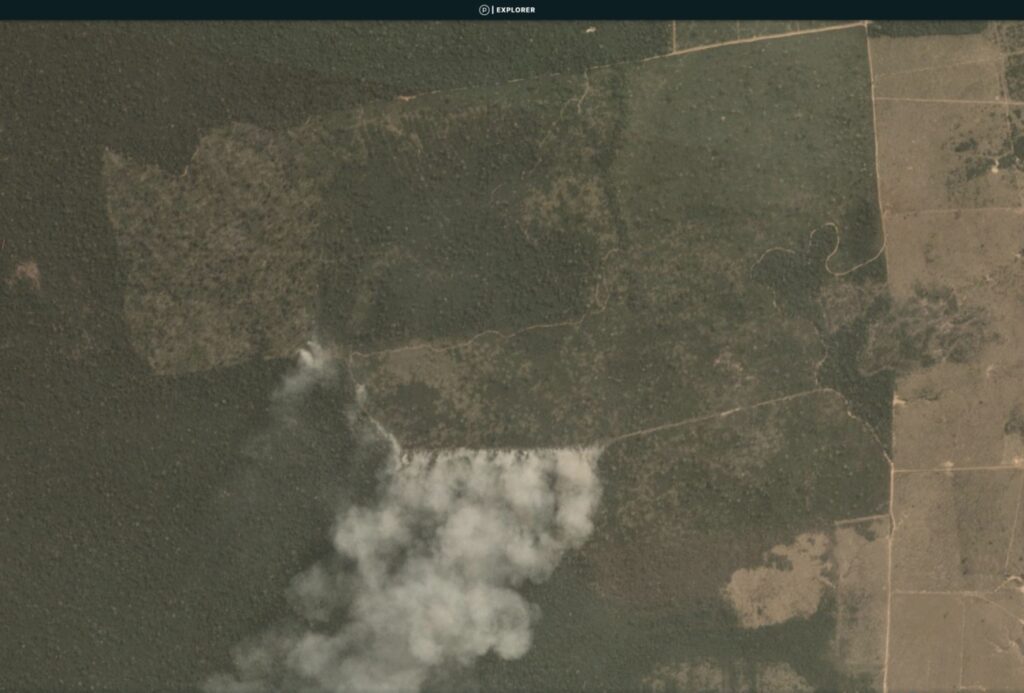
Brazilian Amazon Fire #230 (August 11, 2020)
Brazilian Amazon Fire #221 (August 11, 2020)
Brazilian Amazon Fire #202 (August 10, 2020)
![]()
Brazilian Amazon Fire #188 (August 9, 2020)
Brazilian Amazon Fire #124 (August 6, 2020)
Brazilian Amazon Fire #110 (August 4, 2020)
Brazilian Amazon Fire #109 (August 4, 2020)
Brazilian Amazon Fire #76 (August 1, 2020)
2) Forest Fires
Brazilian Amazon Fire #218, August 2020
Brazilian Amazon Fire #195, August 2020
3) Grassland (Savanna) Fires
Brazilian Amazon Fire #219, August 2020
*Notes and Methodology
The app specializes in filtering out thousands of the traditional heat-based fire alerts to prioritize only those burning large amounts of biomass (defined here as a major fire).
In a novel approach, the app combines data from the atmosphere (aerosol emissions in smoke) and the ground (heat anomaly alerts) to effectively detect and visualize major Amazon fires.
When fires burn, they emit gases and aerosols. A new satellite (Sentinel-5P from the European Space Agency) detects these aerosol emissions. Thus, the major feature of the app is detecting elevated aerosol emissions which in turn indicate the burning of large amounts of biomass. For example, the app distinguishes small fires clearing old fields (and burning little biomass) from larger fires burning recently deforested areas or standing forest (and burning lots of biomass).
We define “major fire” as one showing elevated aerosol emission levels on the app, thus indicating the burning of elevated levels of biomass. This typically translates to an aerosol index of >1 (or cyan-green to red on the app). To identify the exact source of the elevated emissions, we reduce the intensity of aerosol data in order to see the underlying terrestrial heat-based fire alerts. Typically for major fires, there is a large cluster of alerts. The major fires are then confirmed, and burn areas estimated, using high-resolution satellite imagery from Planet Explorer.
See MAAP #118 for additional details.
No fires permitted in the Brazilian state of Mato Grosso after July 1, 2020. No fires permitted in all of Brazilian Amazon after July 15, 2020. Thus, we defined “illegal” as any major fires detected after these respective dates.
There was no available Sentinel-5 aerosol data on July 4, 15, and 26.
Acknowledgements
This analysis was done by Amazon Conservation in collaboration with SERVIR Amazonia.
Citation
Finer M, Nicolau A, Vale H, Villa L, Mamani N (2020) Amazon Fire Tracker 2020: Images of the Brazilian Amazon Fires. MAAP.

